- Books Name
- Social Science Book
- Publication
- Cognizance Publication
- Course
- CBSE Class 7
- Subject
- Social Science
Chapter 5
Markets (Social and Political life-II)
What are markets?
A market is a place purchaser and vendor is associated with the deal buy of merchandise. It built up a connection between the maker and the buyer. There are many kinds of markets that we may visit for everyday needs: these can include shops, hawker’s stalls in our neighbourhood, a weekly market, a large shopping complex, perhaps even a mall.
Weekly market
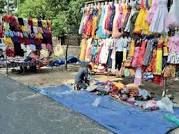
A weekly market is held on a specific day of the week. Weekly market do not have permanent shops. Trader settup shops for the day and then close them up in the evening. Then they may set up at a different place the next day. There are thousands of such markets in India. Many things in weekly markets are available at cheaper rates because they do not have permanent buildings so that they do not have to pay rent, electricity bills, fees to the government and so on additional expenses. In weekly markets, these shop owners store the things they sell, at home. Most of them are helped by their family members and friends, hence they do not need to hire workers. Weekly markets also have a large number of shops selling the same goods, which means there is competition among them.
One of the advantages of weekly market is that most things we need are available at one place. Whether we want vegetable groceries or cloth item utensils -all of them can be found here. We don't have to go to different areas to buy different things. People also prefer going to market where they have a choice and variety of goods.
Shops in the Neighbourhood
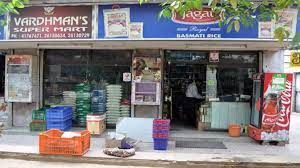
Many shops that sell goods and services are in our neighbourhood. Many of these are permanent shops, while others are roadside stalls, such as that of vegetable hawkers, the fruit vendor, the mechanic, etc. These shops are very helpful as they are close to our home and we can go there on anytime. Usually the buyer and seller know each other in the shops also provide goods on credit. This means that we can pay for the purchase later.
Shopping complexes and Malls
There are other markets in the urban area that have many shops popularly called shopping complexes. In these urban markets, we get both branded and non branded goods. These days, in many urban areas, we also have large multi-storeyed air-conditioned building with shops on different floors known as Malls. Branded goods are expensive, often promoted by advertising and claims of better quality. The companies producing these products sell them through shops in
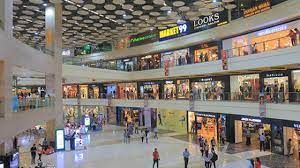
large urban markets, and that times through special showrooms as compared to non-branded goods, fewer people can afford to buy branded ones.
Chain of markets
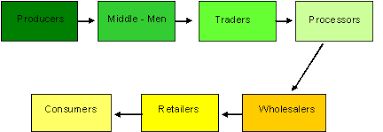
We don’t buy directly from the factory or from the farm. Norwould the producers, are interested in selling a small quantities such as one kilo of vegetables or one plastic mug.
Traders
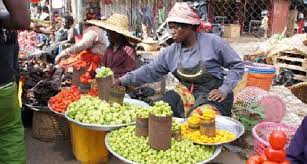
The people between the producer and the final consumer are the traders. The wholesale traders first buy goods in large quantities. These will be then sold to other traders. In these markets, buying and selling takes place between traders. It is through these link of traders that good reach far away places. The traders who finally sells this to the consumer is the retailer. This would be a trader in weekly market or a hawker in the neighborhood, or a shop in shopping complex.
Markets Everywhere
All these markets are in a specific locality and work in a particular manner and time. However, it is not always necessary that one has to go to the market to purchase goods. These days, one can place order for a variety of things through the phone, and through the Internet and the goods are delivered at the home. In clinics and nursing homes sales representative wait for the doctors. Such persons are also engaged in the selling of goods. Thus, buying and selling takes place in different ways, not necessarily through shops in the market. For example,a farmer uses fertilisers to grow crops that he purchase from special shops in the city and they, inturn get them from factories.
Markets and equality
Shop owners in a weekly market and those in shopping complex are very different people. One is a small trader with little money to run the shop whereas the other is able to spend a lot of money to set up the shop. They also earn unequal amounts. The weekly market trader earns little compared to the profit of a regular shop owner in a shopping complex.Similarly, buyers are differently placed. There are many who are not able to afford the cheapest of goods while others are busy shopping in malls. Thus, we can be buyers or sellers in these different market depends, among other things, on the money that we have.
We also examine the chain of market that is found before goods can reach us. It is through this chain that what is produced in one place reaches people everywhere. When things are sold, it encourages production and new opportunities are created for people to earn.

 Cognizance Publication
Cognizance Publication
